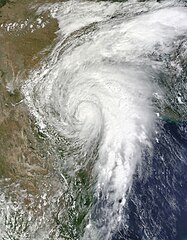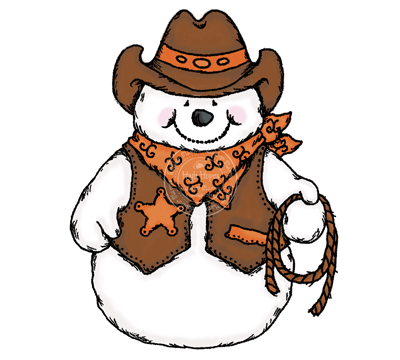And then there is the infamous Great Christmas Freeze of December 1983, the one that lasted two weeks and went all the way into the Gulf Coastal region and Deep South Texas.
Here is my "annual" posting about this, but we do have some new posters this year.




-----
Interesting story in the Outdoors section of the Houston Chronicle about the effects of the Dec. 1983 freeze:
http://www.chron.com/sports/outdoors/article/Effects-lessons-of-1983-freeze-evident-on-Texas-5092926.phpEffects, lessons of 1983 freeze evident on Texas ecosystem
By Shannon Tompkins | December 25, 2013
Ed Hegen still shivers at the memory of the frigid morning 30 years ago this week when the Rockport-based coastal fisheries biologist boarded commercial fisherman Bucky Vannoy's skiff at Flour Bluff and they beat their way across miles of a leaden Upper Laguna Madre to Baffin Bay.
"I've never been so cold in my life," said Hegen, lower coast regional director for Texas Parks and Wildlife Department's coastal fisheries division, recalling his experiences that frozen day during the final week of 1983. "It was July before I thawed out."
Effects of the Christmas 1983 Freeze on Texas' coastal fisheries and fisheries management lasted much longer; some are still felt on this 30th anniversary of what stands as the longest, most severe stretch of sub-freezing cold to grip the Texas coast during the 20th century and the largest, scientifically documented, single-event fish kill that resulted.
"The '83 freeze played a big role in how we focused efforts on (coastal fisheries) monitoring, regulations and enhancement going forward. It changed the way we looked at things and how we planned," Gene McCarty, retired Texas Parks and Wildlife Department deputy director and former director of the agency's coastal fisheries division, said of the record-setting weather that saw air temperature along the coast fall into the teens and remain below freezing for five days to obliterate about 20 million coastal finfish and other marine life and leave fisheries managers and anglers facing daunting challenges.
It began when a pool of Arctic air pushed over the Texas coast the afternoon of Dec. 21, plunging air temperature from the 50s to the 30s in little more than an hour. In Houston, the temperature dropped below freezing the next afternoon and remained there for five days, setting a record for longest period of below-freezing temperatures in the city. Houston's temperature fell below freezing for 10 consecutive nights, bottoming out at 13 degrees on Christmas morning.
It was equally frigid on the coast - 15 degrees in Palacios, 14 degrees in Galveston and Corpus Christi, 19 degrees in McAllen. Air temperature remained below freezing for 77 hours in Port Arthur. Saltwater froze; on Trinity Bay, a sheet of ice 4 inches thick extended almost 500 yards from shore, and a similarly thick layer created a 100-yard band around the edges of the Upper Laguna Madre.
"You couldn't get a boat out in the bay for the first few days because the ice was so thick," recalled Lynn Benefield, who, in 1983, headed coastal fisheries' Galveston Bay field station. "When we finally did get out, the thing that sticks in my mind is seeing the back half of East (Galveston) Bay covered in slush ice from shore to shore. I'll never forget that."
The bitter, lingering cold was unlike anything Hegen, McCarty, Benefield or anyone else had experienced on the Texas coast, where freezes, while not uncommon, are typically short-lived. The most severe cold weather before the '83 freeze had been in January 1951, and it had been almost a century - February 1899 - since Texas had seen such deep, abiding cold along the coast.
Drifts of dead fish
But the below-freezing air temperature wasn't the only thing that chilled Hegen on his recognizance on the Upper Laguna Madre. What he witnessed as he and Vannoy explored the shallow bay system with the earned reputation as home of the best-quality speckled trout fisheries in the state sent shudders down his spine.
"It looked like snow drifts along the shorelines - big piles of white, 15-20 yards wide," Hegen said.
But it wasn't snow; it was ice … and dead fish. Thousands of dead fish.
"There were long windrows of dead fish - every kind of fish - stacked like cordwood," Hegen said. "The number and the size of the sow speckled trout we saw made your jaw just drop. There were thousands of them, dead on the shoreline. Huge trout, some I guessed were bigger than the state record."
And that was just the tip of the iceberg.
"The water was so clear - I've never seen it so clear - that you could see the bottom of the bay and all these shadows. It was trout carcasses; the bay bottom was covered with them," Hegen recalled.
It was the same on all Texas bays - dead fish by the millions.
Inshore fish and other marine organisms living in Texas bays evolved to live in the region's temperate, almost tropical environment. When water temperature drops below about 45 degrees and remains there for a day or so, fish such as speckled trout, redfish, black drum, sheepshead and all manner or smaller forage fish begin seeing their cold-blooded metabolisms slow to levels too low to keep them alive. They freeze to death.
Unprecedented issues
During the '83 freeze, water temperature in Texas bays dropped to as low as 28 degrees and remained below 40 degrees for seven consecutive days.
The freeze presented unprecedented challenges and opportunities for a Texas coastal fisheries division that had only recently began transforming from a reactive, caretaker approach toward marine fisheries management to a proactive philosophy that used science and technology to monitor fisheries and develop long-term management decisions.
Part of that change had begun in the mid-1970s with development of standardized collection of data on fish populations and angler harvest in all Texas bays, giving fisheries managers ways to track trends in those fisheries. And when the '83 freeze hit, Texas coastal fisheries staff mobilized to swarm the bays, systematically collecting as much information as they could on the effects.
"A lot of us worked seven days a week, 15 hours a day for two weeks or more," Hegen said.
"I spent two weeks counting dead stuff," said Paul Hammerschmidt, regulations coordinator for TPWD's coastal fisheries division who, in 1983, was a young fisheries biologist stationed on mid-coast. "There was a lot to count. The magnitude and diversity of the kill is what really stuck with me."
The final estimate was at least 20 million marine creatures perished, including at least 14 million finfish.
Fisheries monitoring programs also provided insight into how many fish survived. It wasn't many.
In the spring of 1983, TPWD coastal fisheries crews conducting standardized, 10-week gill net sampling in the Lower Laguna Madre caught an average of 0.7 speckled trout per hour. In spring of 1984, the catch rate was 0.1 trout per hour. Fish sampling efforts in all Texas bays saw similar absences of trout and other inshore species.
Fast-tracking recovery
The agency's then-new creel surveys of recreational anglers substantiated what anglers already knew: Fishing success in 1984 was horrible. Hegen remembers it was so difficult to catch speckled trout in 1984 that the coastal fisheries division had to abandon a research project that placed tracking tags in speckled trout caught by rod-and-reel angling.
Facing the gaping hole the freeze left in Texas bays, state fisheries managers looked for ways to give fisheries the best opportunity to rebuild.
"One of the interesting outcomes of the freeze was how it transformed our hatchery program," McCarty said.
The first-of-its-kind John Wilson Marine Fish Hatchery had focused on research and modest production of redfish that were stocked only in mid-coast bays. The freeze kicked the hatchery program into hyperdrive, with redfish production greatly increased and fingerlings stocked into every Texas bay. Speckled trout were integrated into the hatchery program.
To protect remaining fish, the agency imposed much more conservative fishing regulations on commercial and recreational anglers. The speckled trout limit was halved from 20 fish per day to 10, and the minimum length increased from 12 inches to 14 inches. The redfish bag limit was cut from five per day to three.
It took two years before the fishery began showing significant signs of recovery. But it did recover … just in time to be slammed by a pair of killer freezes in 1989 that, combined, killed an estimated 17 million fish.
Recovery from the '89 freeze-caused fish kills came much quicker than in the wake of the '83 freeze, and fisheries managers credit lessons learned and refined after the '83 freeze for accelerating that recovery.
"The 1983 freeze was a real awakening for all of us on the coast," Hegen said. "It was a pivotal event for fisheries managers and fishermen."
 The posts in this forum are NOT official forecast and should not be used as such. They are just the opinion of the poster and may or may not be backed by sound meteorological data. They are NOT endorsed by any professional institution or
The posts in this forum are NOT official forecast and should not be used as such. They are just the opinion of the poster and may or may not be backed by sound meteorological data. They are NOT endorsed by any professional institution or 














